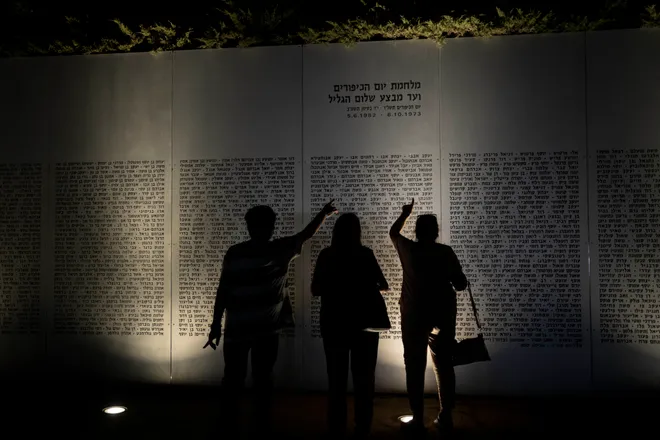What was the Yom Kippur War? Why Saturday surprise attack on Israel is reminiscent of 1973
The infiltration of southern Israel by Hamas at daybreak Saturday amid a religious holiday prompted Israel's prime minister to declare the nation "at war" and stoked memories of another surprise attack that occurred 50 years and one day earlier.
The earlier attack — which launched Arab-Israeli War, also called the Yom Kippur War — was led by Egyptian and Syrian forces. The name Yom Kippur War refers to the surprise attack, which occurred on holiest day of the year in Judaism.
The Arab forces were hoping to regain territory lost during the third Arab-Israeli War in 1967 and took Israel by surprise when they crossed their previous ceasefire lines.
Here's what to know about the Yom Kippur War of 1973:

What was the Yom Kippur War?
The war erupted in the Middle East as Egyptian troops infiltrated the Sinai Peninsula and Syria entered the Golan Heights. The forces hoped to reclaim lost territory after Israel's victory in the Six-Day War of 1967 and convince Israel's leaders that a lasting peace deal was necessary, according to the History Channel.
Not expecting the attack and with many soldiers away from their posts, Israel was initially overwhelmed before it was able to launch a counteroffensive and repel the attacking forces. It ended in an Israeli victory and recapture of the Golan Heights.
Attempted ceasefires brokered by the United Nations unraveled until the war officially ended with a ceasefire on October 25.
The war drew the United States and the Soviet Union nearer to potential nuclear conflict, as each aided its allies after failed attempts at proposing ceasefires. The Soviet Union then began sending weapons to resupply Syria and Egypt, and days later, the U.S. did the same for Israel, according to the State Department.
The war also happened during the Islamic holy month of Ramadan, and is also known as the Ramadan War.
How long did the Yom Kippur War last?
The war spanned nearly three weeks, from Oct. 6 through Oct. 25, 1973. Most fighting had ended by October 26.
Who fought in the Yom Kippur War?
Egyptian and Syrian forces launched the attack against Israel's military.
What happened after the war?
The Yom Kippur War set the stage for future attempts at peace agreements, but was costly for all the nations involved. Despite gaining more territory, Israel was criticized for a lack of preparation before the attack, and also suffered many casualties.
"For both Egypt and Israel, the key lesson drawn from the war is that another war between them is just too costly in both treasure and blood and should never be fought," American University School of International Studies professor Boaz Atzili said in a university publication on the war's 50th anniversary. Atzili said that led to Israel's eventual agreement to return the Sinai territory to Egypt.
Atzili said in the aftermath, U.S. Secretary of State Henry Kissinger began a diplomatic mission that led to an Israeli-Egyptian peace agreement.
What is Yom Kippur?
Yom Kippur, or the Day of Atonement, is the holiest day of the year in Judaism. During Yom Kippur, which lasts one day, Jews reflect on sins or wrongdoings from the previous year. Many Jews will attend services at synagogues or other congregations, reciting special prayers and singing special songs.
Read more about the holiday.

Disclaimer: The copyright of this article belongs to the original author. Reposting this article is solely for the purpose of information dissemination and does not constitute any investment advice. If there is any infringement, please contact us immediately. We will make corrections or deletions as necessary. Thank you.




